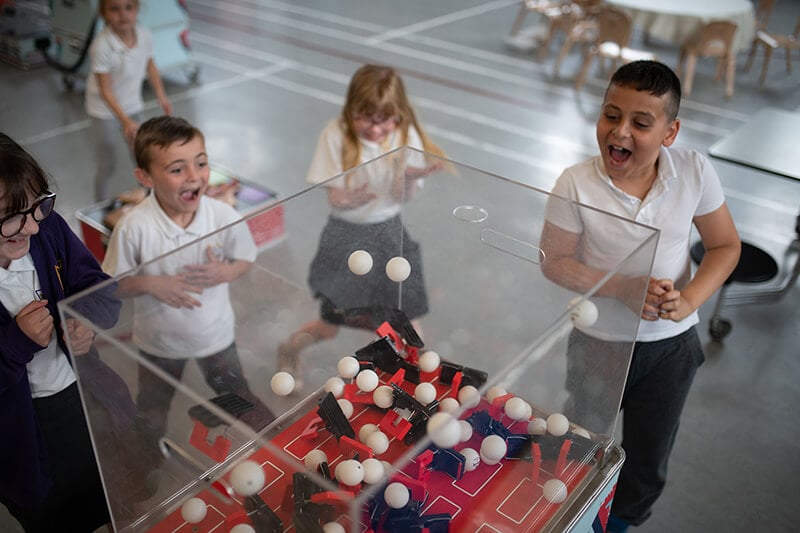What's cooler, aliens or dinosaurs? If a scientist had a time machine would they go to the past or the future?
Whether you're an expert in physics, chemistry and biology, or you switched off in science at school, 'Ignite', the new podcast from Glasgow Science Centre, is for you. Featuring a new guest every week, we delve into the life and work of scientists from all over the world, finding out how they ended up where they are today. Our guests also provide valuable advice for people who have always been interested in the sciences but have no idea where to start.
E01: Dr Jonathan Shanklin - Discovering the hole in the ozone layer
To those with an avid interest in science, Dr Jonathan Shanklin perhaps needs no introduction. In the 1980s, Jonathan was part of the team that discovered the hole in the ozone layer above Antarctica. The discovery saved Earth from disaster. Jonathan talks to host Patrick Wallace about this discovery, his early life, conducting experiments in his grandparents' attic, and whether he prefers tea or coffee. With thanks to the British Antarctic Survey.
E02: Professor Jaime Toney - Sustainability and the GALLANT project
This week's guest is Jaime Toney, professor of environmental and climate science at the University of Glasgow, and leader of the GALLANT project. Jaime shares her experience of growing up in the USA and moving to Scotland to pursue her scientific career. She also provides insightful advice to those starting out in science, and perhaps most importantly, reveals if she prefers wizards or superheroes.
E03: Emmanuel Zuza - Macadamia and academia
Patrick chats to Emmanuel Zuza, a final year climate science PhD student at the Open University. Emmanuel's journey into science is a fascinating one. Growing up in Malawi and having failed chemistry at school, his route into the sciences took several twists and turns on the way. Emmanuel talks all things academia, macadamia and dinosaurs!
E04: Dr Cecilia Medupin - Positivity and purpose
This week's guest is Dr Cecilia Medupin, a senior lecturer in earth and environmental sciences at the University of Manchester. From wanting to be a doctor when she was younger, to completing her national military service for Nigeria, Cecilia's route into science is a unique one. Cecilia provides valuable advice to young people and epitomizes the importance of a positive outlook.
Partners
Ignite: How scientists become scientists was produced by Glasgow Science Centre. We are grateful to our partner NERC, the Natural Environment Research Council for their support.




